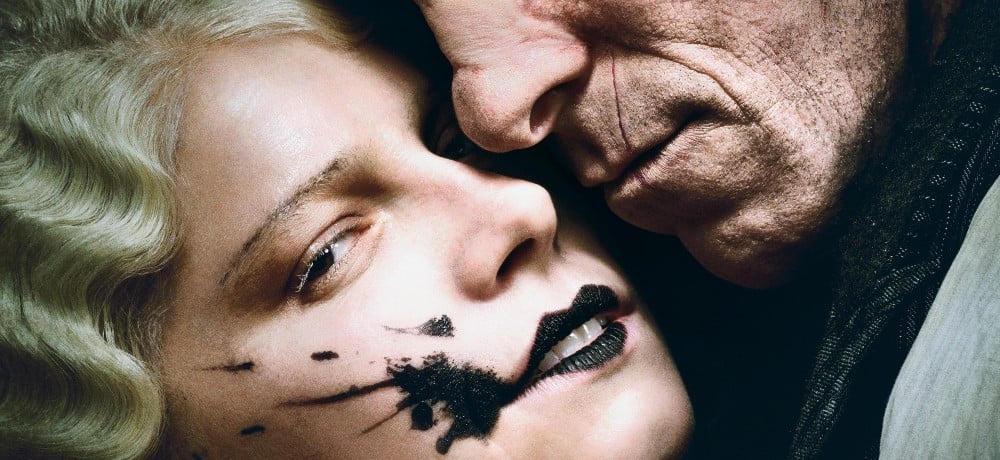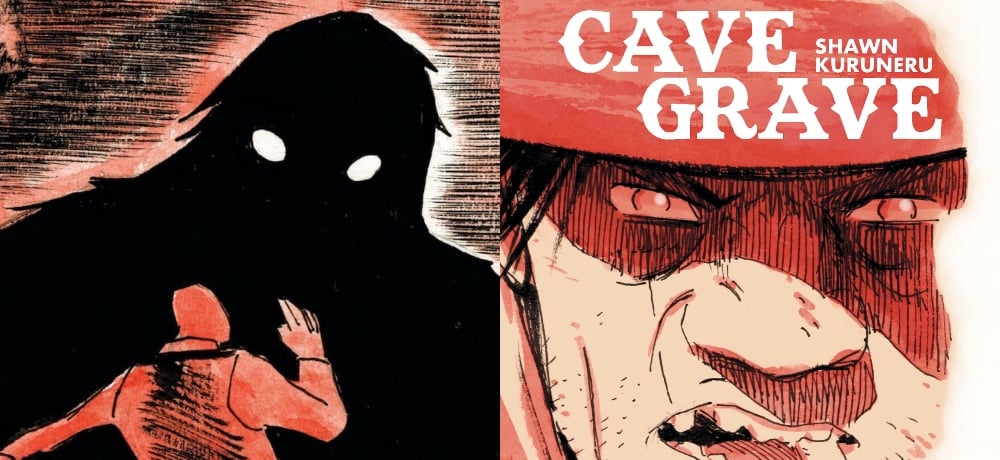





Earlier this week, Irish filmmaker Chris Baugh celebrated the world premiere of his crime thriller Bad Day for the Cut at the 2017 Sundance Film Festival’s Midnight program. While in Park City, Daily Dead caught up with Baugh, as well as co-writer/producer Brendan Mullin and Bad Day star Nigel O’Neill, to hear more about their collaboration, the way they focused on the characters instead of just giving viewers mindless violence, and their thoughts on working with Susan Lynch (who portrays the film’s big bad, Frankie Pierce).
Read on for our Sundance interview with the trio behind Bad Day for the Cut, and look for more coverage from Sundance 2017 right here on Daily Dead.
Congrats on the film, guys. We've seen crime thrillers before, but I loved the subtlety of this one, and particularly I loved Donal, because he's just such an interesting character to follow. Can you discuss how the project came together?
Chris Baugh: The film came together when we sat down to write our first feature for Northern Ireland Screen's low-budget feature scheme. The starting point was we wanted to write something for Nigel, because we've worked with Nigel a number of times before and we just thought he was such an amazing actor. So, we wanted to write something for him.
We're massive fans of the revenge genre. We're also from County Tyrone in Northern Ireland, so we wanted to do something that would feel specific and authentic to where we're from, but would also be a fun genre ride. The first touchstone for it was Lenny Abrahamson's Garage meets Oldboy. It was like a Korean revenge film set in Northern Ireland. That was the initial spark of the idea and then me and Brendan worked together writing the script. We spent a lot of time writing the story and coming up with a structure on a whiteboard and working through drafts and drafts and drafts to get something that we thought was ready to shoot.
Brendan Mullin: Like you say, the revenge genre, there are a lot of movies out there. It's a well-trod genre, but it's one that we love. In this type of film, we got very fortunate that we hooked into this character of Donal—his way of being, but also just a different context with Northern Ireland. Northern Ireland in the countryside in a revenge thriller is a little left of center, a little fresher than the usual standard fare. It all started with Donal, really. It's all about him and his story and sticking to him and saying, "Well, what would he do in this situation?"
In terms of looking at the character of Donal, Nigel, what did you see in him that you thought he would make for a compelling character to bring to life? And was everything already on the page, or did these guys let you come in and collaborate a little bit and put yourself in there, too?
Nigel O'Neill: Oh yeah, we did collaborate. Where we're all from in Tyrone, there are characters like Donal who farm, who live with their mothers until they’re of an older age. When they first sent me the script, we read through the script and I loved Donal, of course. We sat down and I read the bits and they would maybe tweak some of the words and some of the mannerisms. We really tapped into some of them. Then, on set obviously, things change. Little things would come to you on the day and you work with the director and fine-tune it on the day.
Chris Baugh: We wrote the character specifically for Nigel. The character was there on the page to an extent, but whenever Nigel came in on the first reading and then every day on set, he just brought so much more of the humanity to the character than we thought would have been possible. It was a joy seeing him play the part every day.
Brendan Mullin: That was a very important aspect to Donal, that he is an empathetic character. You feel for his situation and you feel for what he's going through. Even before what happens to his mother, you get a good glimpse of what his life's like. Nigel is so good at putting that across with just even a look. That made it a bit more low-key in those moments, a bit more subtle. It's also an interesting way of doing it. You don't really have to do much with Nigel in that way, because it's already there in his expressions and his mannerisms.
Then, when everything switches up a gear, you're kind of like, "Oh my god. What do we do? What's he gonna do now?" Hopefully, at that point, the audience goes with him and really enjoys that ridealong on the story.
What’s really interesting is that so many times in these movies, the villains are just villains. That's it. But the way that you add this nuance to everything going on, it makes you realize towards the end of the movie that nobody's going to win. Regardless of what happens, nobody is winning in this situation.
Brendan Mullin: Thanks for picking up on that, because that was really important to me and Chris with the script on that level, the idea of this revenge tale that everyone has a point of view, or everyone comes to develop a different point of view.
Chris Baugh: The theme that me and Brendan were going after in writing the script was about how blind loyalty can be destructive. That's something that's very non-Irish. As we were developing the script, that became part of all the characters. We wanted all of them to have a loyalty. For Frankie, it's loyalty to her father. For Ballantine, it's loyalty to Frankie. For Bartosz, it's loyalty to his sister. For Donal, it's loyalty to his mother. It was important to us that everyone had a point of view and everyone felt like the hero of their own story.
Nigel O'Neill: For Donal, to me, his story was that he was just a normal, everyday man and then these situations start coming at him all the time. The situations and then finding out these things about his mother, for me, that was very interesting to explore. This is a way out of his comfort zone, so every new situation he was coming from he was just dealing with it as he could. He knew how awful the whole thing was. As you said, towards the end, he's still struggling. He has lots of different emotions that come to a head. It's a point, I feel, when you start to see it in him. You start to feel it in him. I certainly did.
I'd be remiss if I didn't ask about Susan, who plays Frankie, because she's such a force of nature in this movie. I was curious if you guys could talk about finding her and Nigel, for you, going against her character in the film.
Chris Baugh: Yeah, Susan is absolutely incredible. She's been around for a while. She's one of Northern Ireland's best actors. We were very lucky that she read for us and she sent a tape in. The tape made me laugh in one second and be terrified in the next second. She managed to find that humor and the scary insanity of Frankie and also the pathos and humanity as well. We were very lucky to get her.
Brendan Mullin: Not to speak too much for Susan, but she would tell us during the shoot how much she just enjoyed playing Frankie.
Chris Baugh: It's the kind of role that she hadn't had the opportunity to play, and she went at it with everything she had.
Nigel O'Neill: The first day I met her, I didn't know her. I'd seen her on TV and all this, so I didn't know what to expect. I met her the first day and she was just like everybody else, and she would just be cracking at everything. Every scene we shot, it was just laughs after every time, "Cut," she was just laughing and she says, "This is effing mad." She'd just crack. She just loved the whole physicality of her character doing all this stuff.
Chris Baugh: Frankie is a character that blows hot and cold on the turn of a dime, and she had a lot of fun playing those different aspects.
Brendan Mullin: Susan brought a lot to it and just had fun playing it. That was what she wanted to do, and she came across really happy with it. It's a great role for her and just a great character, too.
———
In case you missed it, check out Heather’s Sundance review of Bad Day for the Cut.